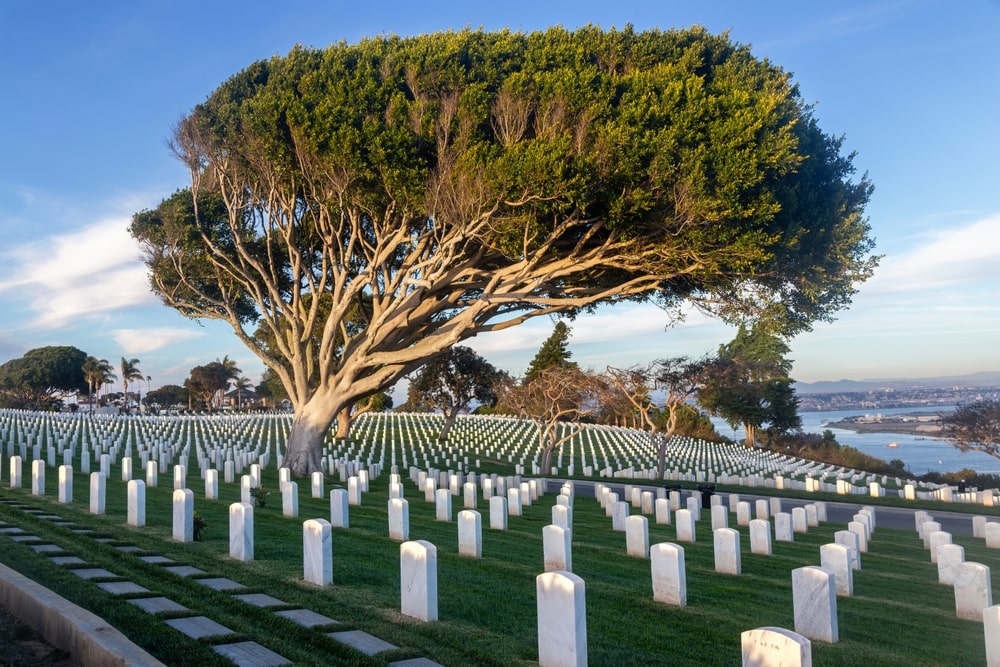When you’re planning a funeral, there are many decisions to make, including whether to have an open or closed casket service. At first glance, having an open casket at a viewing or visitation may seem old-fashioned, but did you know that many people find it essential to the healing process? Today, let’s discuss 3 key benefits to having an open-casket funeral and how each one can help you and your family heal after a loss.
Benefit #1: An Open-Casket Funeral Helps You Acknowledge the Reality of Loss

When you lose someone you love, the nature of your relationship changes. Though still a part of your life and memories, your loved one will no longer be physically present. An open-casket funeral helps you accept this difficult change by allowing you to see the body of your loved one. The ability to see a loved one can be an important first step in acknowledging the reality of your loss and the impact it will have on your life and the lives of those around you.
Benefit #2: An Open-Casket Funeral Provides a Setting for Communal Support

The loss of a loved one affects your relationships with friends and family who are also grieving. An open-casket funeral provides a communal setting where you can acknowledge how this loss changes your relationship to the deceased, but also to one another. Gathering together can lessen your grief burden, strengthen your community of support, and ease the transition to life without your loved one by your side.
Benefit #3: An Open-Casket Funeral Allows You to Say Goodbye in Person

Among the hardest things about losing a loved one are the many ways in which you’re reminded of their physical absence. Without them to see or speak to, it may be hard to recall their physical features, cherished individuality, or unique style. An open-casket funeral allows you to be near your loved one’s body one more time, to remember them as they were in life, and to say goodbye in a way that brings you closure and a sense of peace.
What’s Next?
Now that you understand the 3 key benefits of an open-casket funeral, the choice is entirely up to you and your family. In some cases, a closed casket funeral is the right choice, particularly if a loved one’s body is unrecognizable after his or her passing.
As you consider funeral details and planning options, remember that acknowledging the reality of your loss, giving and receiving support, and being able to say goodbye in person are all normal and significant needs of grief. An open-casket funeral is one well-established way of meeting those needs.
If you’d like more information about planning a personalized funeral that will bring healing to family and friends, check out these resources.
Resources for Caskets:

With an open-casket funeral, you will certainly need to consider what type of casket you’d like to use. But what should you consider when choosing a casket? While some variables, such as cost, have probably occurred to you, others may not have. Caskets come in a variety of styles, materials, and price ranges. To learn where to begin when choosing a casket, start with “5 Questions to Ask When Selecting a Casket.”
Also, if you’d prefer, your chosen funeral home may offer the ability to rent a ceremonial casket. This may be a good option if you’ve chosen cremation but still want to have an open-casket service beforehand. Read “Rental Caskets: What You Need to Know” to find out more.
Resources for Funeral Personalization:

In addition to choosing a casket, you will also want to add personal and meaningful touches to the open-casket service to reflect your loved one’s life. By doing so, your family can honor your loved one’s unique life and memory. To start planning a meaningful service that will reflect individuality and personality as well as bring healing to friends and family, take a moment to read “10 Ideas for Making a Funeral More Personal.”
As you decide the best way to honor your loved one’s life, don’t hesitate to reach out to funeral directors and funeral home staff. They can answer any questions you may have about open-casket funerals, ceremonial caskets, personalizing the service, and so much more. You don’t have to do this alone—there are people available to help you through.




